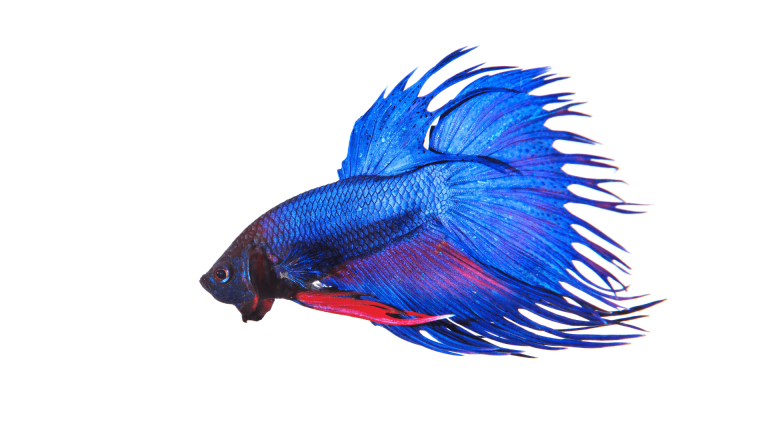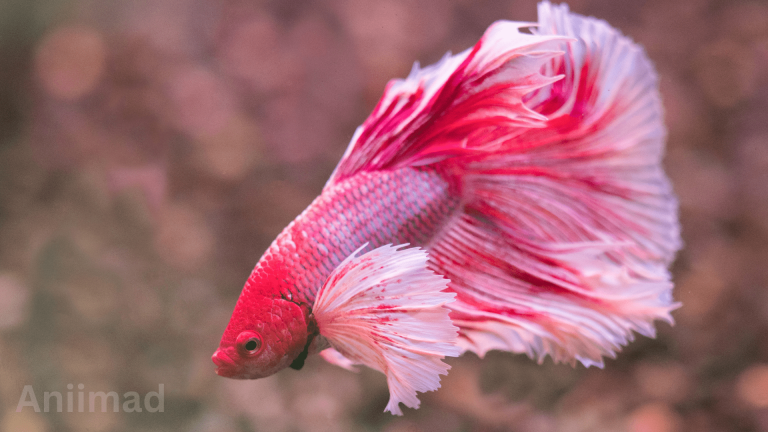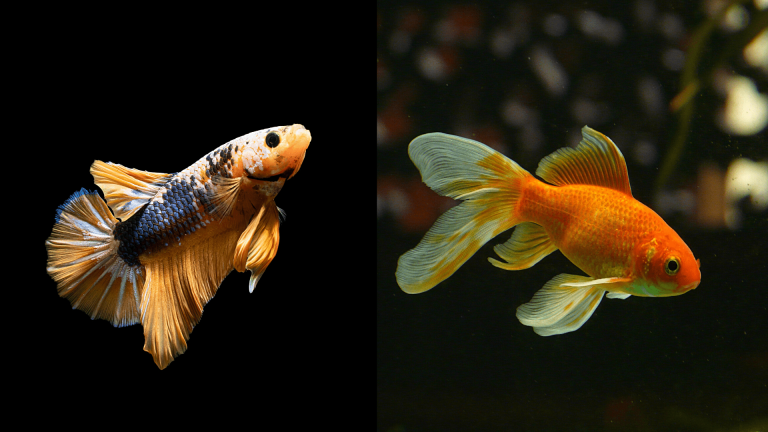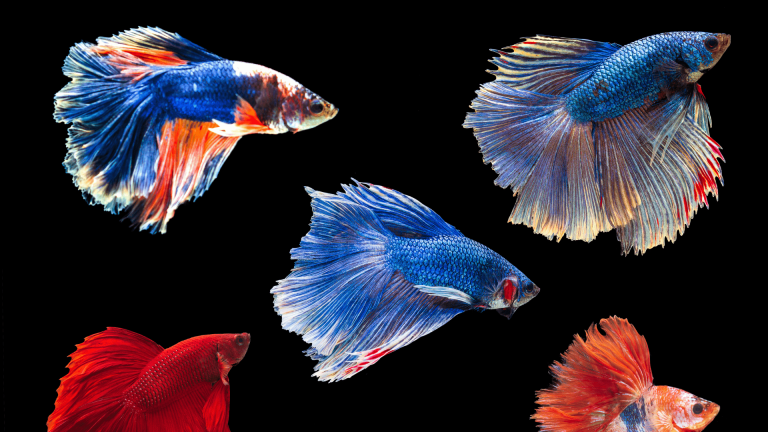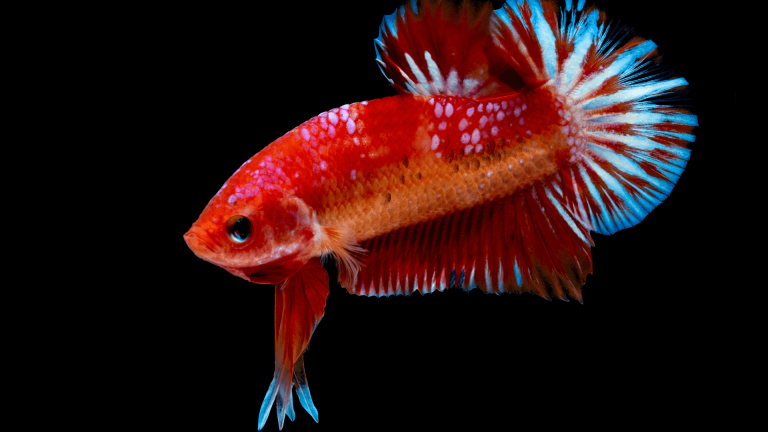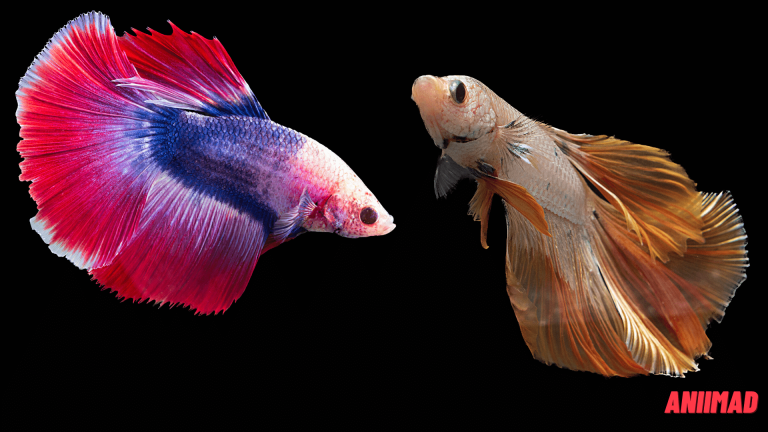How to Take Care of a Betta Fish in a Bowl: The Ultimate Guide
How to Take Care of a Betta Fish in a Bowl: The Ultimate Guide . Betta fish, or Siamese fighting fish, are captivating and vibrant creatures that make wonderful pets. Their stunning colors and elegant fins make them popular among aquarium enthusiasts. While many people believe that keeping a betta fish in a large tank is essential, providing a happy and healthy life for your betta in a well-maintained bowl is possible. The critical actions to ensure your betta thrives in a bowl set are covers in this post.
Is It Ok to Keep Betta Fish in a Bowl?

While keeping a betta fish in a bowl is possible, it is not the ideal environment for their well-being. While betta fish can live in a bowl, a more significant, more suitable habitat will allow them to thrive and lead happier, more meaningful lives.
Why Keeping a Betta Fish in a Bowl is Not the Best Option
Limited Space
Bowls typically provide minimal swimming space for betta fish. They are active swimmers and need enough room to move around and explore.
Water Quality
Bowls have limited water volume, which makes it challenging to maintain stable water parameters. Fluctuations in water quality can stress the fish and lead to health issues.
Lack of Filtration
Most bowls need filtration systems to remove waste and maintain water quality. Poor water conditions can be harmful to the betta’s health.
Temperature Regulation
Bowls are more susceptible to temperature fluctuations, and maintaining a stable, warm environment is crucial for betta fish, as they are tropical species.
Limited Enrichment
Bowls offer little space for decorations and hiding spots, leading to a less stimulating environment for the fish.
Increased Maintenance
Smaller volumes of water require more frequent water changes and cleaning to prevent the buildup of toxins.
Ideally, betta fish should keep in an appropriately sized and filtered aquarium, preferably with a minimum capacity of 5 gallons or more. It allows for better water quality and provides the betta with ample space to swim and explore. A giant aquarium also allows for adding live plants and decorations, which offer enrichment and places for the fish to hide.
If you want to provide the best possible care for your betta fish, consider investing in a suitable aquarium with a filtration system, a heater to maintain a stable temperature, and regular maintenance to ensure your beloved pet’s healthy and happy life.
Can Betta Fish Live in a Bowl Without a Filter?

Yes, betta fish can technically live in a bowl without a filter, but it is not an ideal or recommended setup for their long-term health and well-being. While bettas are hardy fish and can tolerate various conditions, a bowl without filtration poses several challenges that can adversely affect their health.
It not recommend to keep a betta fish in a bowl without a filter for the following reasons.
Poor Water Quality
With a filter, the water in the bowl will quickly accumulate waste, uneaten food, and debris, leading to better water quality. Ammonia and nitrite levels can rise rapidly, which are harmful to fish and can cause stress, illness, and even death.
Limited Oxygen Exchange
A lack of filtration can result in little oxygen exchange at the water’s surface. Since bettas are labyrinth fish, they possess a special organ that enables them to breathe air directly from the water’s surface. Insufficient oxygen levels can stress the fish and compromise their overall health.
Temperature Fluctuations
Bowls are more susceptible to temperature fluctuations, especially in smaller volumes of water. Betta fish are tropical species and require a stable water temperature between 76°F to 82°F (24°C to 28°C) to thrive. Maintaining a stable temperature becomes challenging in a bowl without a filter or heater.
The buildup of Toxins
In a bowl without filtration, harmful toxins like ammonia and nitrite can build up quickly. These toxins can burn the fish’s delicate gills and damage their internal organs, leading to serious health issues.
Limited Space
Bowls typically do not provide enough space for bettas to swim and explore. Fish that are stressed out and sick often lack exercise.
To preserve the water’s quality, if you opt to keep a betta fish in a bowl, you must frequently replace the water. However, even with regular water changes, the water quality in a bowl can still be more challenging to control than in an adequately filtered and more giant aquarium.
To ensure the best possible care for your betta fish, consider investing in a suitable aquarium with a filter, heater, and proper maintenance routine. A filtered aquarium provides a more stable and healthier environment, leading to a happier and longer life for your betta.
How Long Can a Betta Fish Live in a Fish Bowl?

The lifespan of a betta fish can vary depending on several factors, including the care provided, water quality, diet, genetics, and overall health. In a fishbowl without a filter or proper maintenance, the life expectancy of a betta fish is typically reduced compared to a well-maintained and appropriately sized aquarium.
On average, a betta fish can live anywhere from 2 to 4 years in a fishbowl, but some may live longer or shorter depending on the circumstances. Unfortunately, some bettas kept in suboptimal conditions might not live beyond a year.
In contrast, when properly cared for in a suitable aquarium with a filter, heater, regular water changes, and a balanced diet, bettas can live up to 5 years or more. Some well-cared-for bettas are knowns to reach six or even seven years of age.
Providing a proper environment and attentive care can significantly impact your betta fish’s longevity and overall health. Suppose you want your betta to have the best chance at a long and healthy life. In that case, investing in a well-maintained and adequately sized aquarium with appropriate equipment and regular maintenance is essential.
How to Take Care of a Betta Fish in a Bowl
Frequently Asked Questions (FAQ) About How to Take Care of a Betta Fish in a Bowl
Can I keep my betta fish in a small bowl?
While betta fish can survive in a small bowl, it not recommend for their long-term well-being. Bettas need enough space to swim and explore, so it’s best to provide a bowl with a minimum capacity of 2.5 gallons or a more giant, properly filtered aquarium.
Do betta fish need a filter in a bowl?
Betta fish can live in a bowl without a filter, but it is not ideal. Filters help maintain water quality by removing waste and debris, ensuring a healthier environment for the fish. If you opt for a bowl, frequent water changes become crucial to maintain water quality.
How often should I change the water in the betta fish bowl?
In a bowl without a filter, it recommends performing partial water changes of about 25% every 2 to 3 days. It helps prevent the buildup of harmful toxins and ensures better water quality for your betta.

Can I use tap water for my betta fish?
Tap water can use for betta fish, but it treats to remove harmful chlorine and chloramines. Use a water conditioner designed for aquarium use to make tap water safe for your betta.
Can I feed my betta fish regular fish food flakes?
While betta fish can eat fish food flakes, they are primarily carnivorous and do best with a diet that includes high-quality betta pellets as their primary food source.You can occasionally give them treats like freeze-dried or live brine shrimp and bloodworms to augment their diet.
How do I know if my betta fish is healthy?
A healthy betta fish will be active, display vibrant colors, and have erect fins. They will have a good appetite and show curiosity in their surroundings. If your pet exhibits any symptoms of lethargy, loss of appetite, discoloration, or strange behavior, it may be an indication of a health problem. Consult a licensed veterinarian for guidance.
Can I keep multiple betta fish in the same bowl?
Betta fish are territorial and highly aggressive towards each other, especially males. Keeping multiple bettas in the same bowl is not recommended, as they are likely to fight, causing injury or even death. Each betta should have its own separate space.
Do betta fish need a heater in their bowl?
Yes, betta fish are tropical species and require a stable water temperature between 76°F to 82°F (24°C to 28°C). A heater is essential, wildly, if the room temperature fluctuates significantly.
How can I make my betta fish happy in a bowl?
Provide ample room for swimming, add enrichment like live or silk plants and decorations, maintain high water quality through routine water changes, and make sure the water temperature is constant and comfortable to keep your betta fish happy in a bowl. A happy betta fish will display vibrant colors and be active and curious in its environment.
Conclusion: How to Take Care of a Betta Fish in a Bowl
A betta fish can thrive in a well-maintained bowl with proper care and attention. Remember to select the right-sized bowl, maintain water quality, provide a balanced diet, and conduct regular observations to ensure your betta’s happiness and longevity. Following these guidelines can create a beautiful and thriving environment for your beloved betta companion. Happy fish-keeping!

